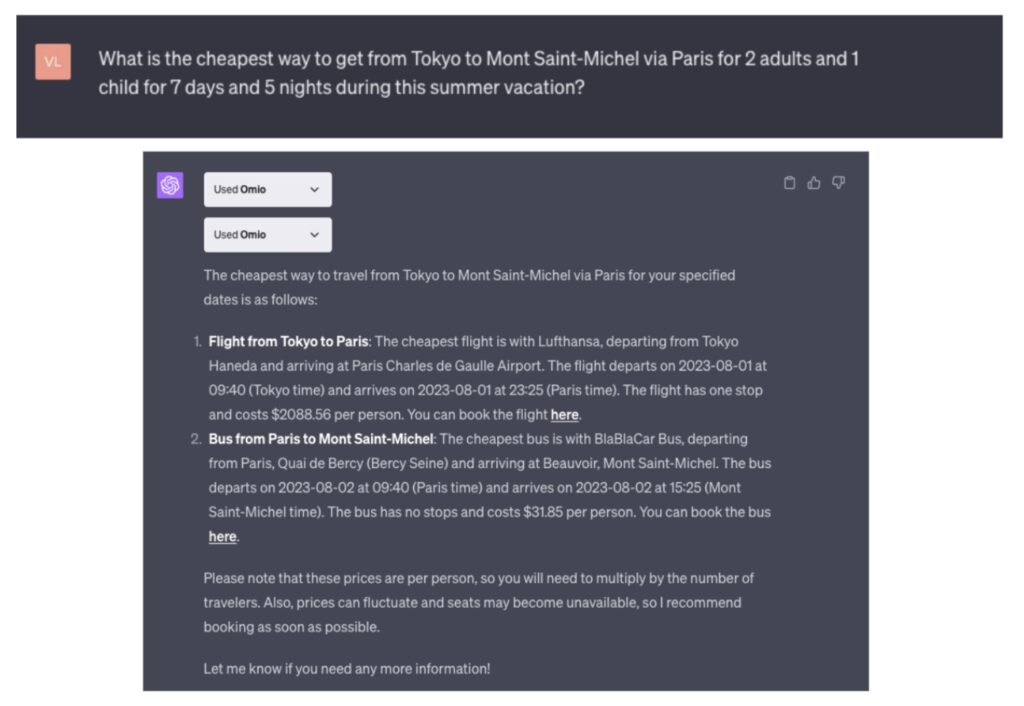Travel booking app Omio has announced the launch of its plugin for ChatGPT, which has been designed to enable users to discover the best way to travel in real-time, using data from Omio’s inventory of bookable tickets and the power of OpenAI’s technology.
According to a release from the platform, this is the first plugin of its kind by a ground transportation provider, allowing users to search and compare travel across trains, buses, flights and ferries.
“In the past two years, our tech team has developed the Omio API extensively, and we are thrilled to be able to apply it within the OpenAI world, bringing a further innovation in the travel technology sector. Users of ChatGPT now have access to Omio’s inventory of over 1000 transport providers, and can ask ChatGPT questions they would have historically asked a travel agent about their travel arrangements. We are proud to digitalise the industry,” said Tomas Vocetka, chief technology officer at Omio.
“Our vision as a company is to empower billions of people to travel anywhere at any time, and the launch of the Omio plugin for ChatGPT acts as a bold step in achieving this. We are giving new consumers globally the opportunity to search for, compare and book travel on their terms. Consumer-centric innovation is at the heart of all our decision-making, and we are excited for travellers to be able to ask ChatGPT for the fastest trip by train or for the cheapest way they can travel with their family in peak season, knowing that they will get quality results from the Omio platform,” Vocetka continued.
The Omio plugin is available in the ChatGPT plugin store now.
Skift Ideas uncovers the most creative and forward-thinking innovations happening across travel. We celebrate innovation through our Skift IDEA Awards and hear from leaders on our Ideas podcast.
You can listen and subscribe to the Skift Ideas Podcast through your favorite podcast app here.

